VKC 50th Website Reflections
Here are reflections about the Vanderbilt Kennedy Center from researchers.
| One of the reasons I love working in academia, especially within the field of clinical research informatics, is the opportunity to see real-world examples of impact from our work on a regular basis. It is most rewarding to think that the work our teams are doing today might literally provide service or contribute to research that will make a difference in the lives of people we strive to help tomorrow. By focusing energy and attention on rare disease and developmental disabilities research, we have the potential to help communities that are most deserving and in great need of assistance. I began collaborating with Kennedy Center teams several years ago and quickly grew to appreciate the culture and professionalism of faculty, staff, and volunteers. Working with the Kennedy Center has been transformative. Paul Harris, Ph.D. - Biomedical Informatics and Biomedical Engineering |
|
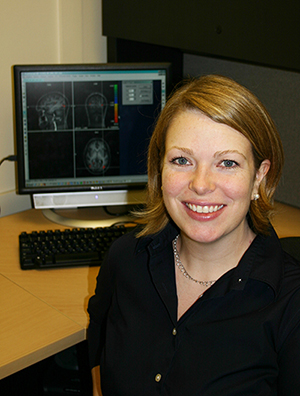 | For as long as I can remember, I have been fascinated with learning about how the brain works and what can go wrong in the brain to cause problems with cognition, mood, and personality. The VKC is exceptional in its commitment to the people it serves and also the people it trains and employs. The positive energy and enthusiasm that is projected by its leadership is inspiring, and the collaborations that I have developed with investigators through the Kennedy Center have been among the most productive and enjoyable. I am eager to discover new areas where I can bring my skills and experience to bear. I am proud to be associated with such an amazing group of scientists, educators, and clinicians. Tricia Thornton-Wells, Ph.D. - Molecular Physiology and Biophysics and Biomedical Informatics |
|
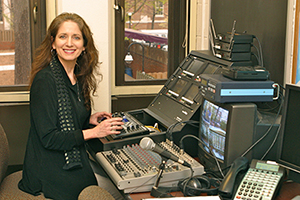 | As a clinical scientist, my research is highly influenced by the natural social world in which our children with autism struggle and strive to succeed. Within this context–amidst peer interaction and play–we are learning ways to understand and thereby improve the social functioning of children with autism and related neurodevelopmental disorders. Our research in the SENSE lab is fundamentally translational–informed by clinical knowledge, guided by research, and motivated by community partnerships. The mission of the VKC, to improve the quality of life of individuals with developmental disabilities, has always resonated with me and was one of the key reasons I came to Vanderbilt. From the pictures on the banners that greet you when you walk in the door to the Grand Round presentations by leaders in neuroscience, psychology, special education, medicine and more–there is a deep sense of commitment to making each day better, brighter, and more meaningful for the children and adults we serve. Blythe Corbett, Ph.D. - Psychiatry and Psychology |
|
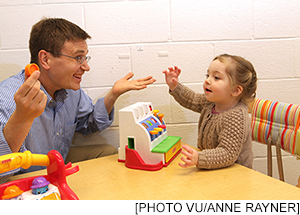 | I spent most of my graduate training learning about the development of very young children who had experienced serious life stressors. This focus on early social and emotional development was matched with opportunities to work with young children with autism during my fellowship. Since then, I have worked with young families concerned that their child may have autism. It is a challenging and powerful experience to try to provide families with answers to questions regarding autism and other developmental concerns. This represents an opportunity to understand how we can join with families to create systems of care of meaning and value. My continued attraction to the VKC is linked to center’s ability to help form partnerships among researchers, clinicians, educators, and families in a manner that truly impacts communities. The ability to collaborate and work alongside leading scientific experts in behavior, education, genetics, and neuroscience who share a focus on pushing science of impact and meaning is so very fulfilling. Increasingly I have been able to intersect with the powerful training programs (i.e., LEND, UCEDD, TRIAD) supported through our Center that provide exceptional training to our next generation of scientific and clinical leaders. In my experience, few places are capable of bringing together current and future leaders in the field of developmental disabilities in such powerful ways. Zachary Warren, Ph.D. - Pediatrics, Psychiatry, and Special Education |
|
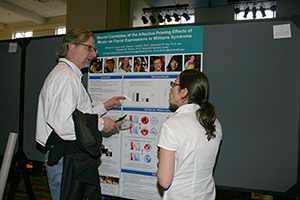 | My interests in studying reading disabilities began when I got a job out of college working at a school for children with dyslexia. The year I spent teaching raised so many questions that I decided to go back to school and get a Ph.D. in Communications Disorders and Learning Disabilities. My research revolves around helping to improve the long-term literacy outcomes of children who struggle to develop reading skills. This focus fits well within the core mission of the Kennedy Center. Being a VKC investigator has provided me with opportunities to extend my research that would not have been possible without the relationship. I value the multidisciplinary research opportunities afforded by being a VKC member. Donald Compton, Ph.D. - Special Education |
|
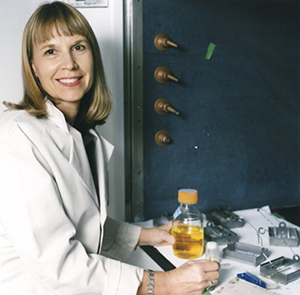 | When I first came to Vanderbilt, I was heavily involved in basic questions concerning neural development. Areas where there are errors in development offer clues about typical development and function. In addition, errors in development lead to sensory, motor, and cognitive deficits that similarly offer clues about how the brain is wired to perform tasks typically. The Vanderbilt Kennedy Center was originally attractive to me in the early 1980s because it was one of the few Centers on campus concerned with neural development and one of the few places where neuroscience investigators came together. Now my research is beginning a new chapter which may move our research questions closer to those of the Kennedy Center, since the structure we have been studying, the primate pulvinar, has been implicated in such developmental brain disorders as schizophrenia, autism, and ADHD. Vivien Casagrande, Ph.D. - Cell & Developmental Biology and Psychology |
|
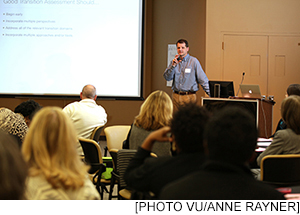 | The barriers to meaningful school and community inclusion are often complex and pervasive. Addressing many of the prevailing challenges encountered by adolescents with disabilities and their families will require innovative and multifaceted solutions. Interdisciplinary work draws upon the best of what we know, works from multiple fields, and incorporates the perspectives of a breadth of key stakeholders. This is critical to expanding opportunities, strengthening supports, and improving outcomes for youth and young adults with significant disabilities. The VKC draws together in one place a constellation of compelling researchers, practitioners, policy makers, community leaders, and family members who share a deep and common commitment to enhancing quality of life for people with intellectual and developmental disabilities. For an early career scholar like myself, there is simply no better place to do this important work. Erik Carter, Ph.D. - Special Education |
|
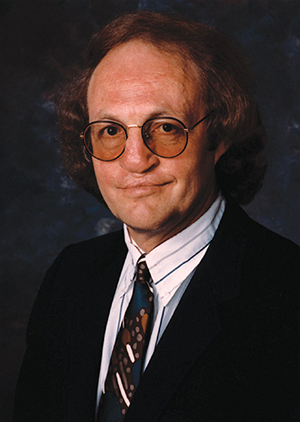 | In so many different ways, the VKC carries out the work near and dear to the Kennedy family, a family interested in disabilities long before such interest was popular. In particular, the Kennedy Center’s support of interdisciplinary collaborations has been crucial to my research as well as to that of many other VKC investigators. Indeed, the VKC has been a cornerstone in the development of Vanderbilt’s strong culture of collaboration. Specific to my work, for some time I have been convinced of the salience of emotional processes to a comprehensive understanding of childhood stuttering; however, we lacked the necessary expertise to launch a meaningful program of study of emotion. Through the VKC, however, the necessary expertise was found in the form of psychologist Tedra Walden. The resulting collaboration has led to an NIH-supported program of study. Without the VKC, this collaboration would not have occurred, a collaboration that has made a difference in my research that will, I believe, make a difference in the lives of people who stutter and their families Edward Conture, Ph.D. - Hearing and Speech Sciences |
|
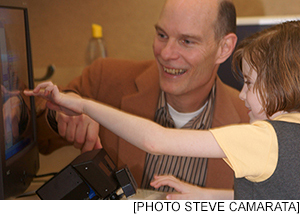 | My research interests have always been grounded in questions of development, specifically as they relate to the development of sensory and multisensory systems. As a natural extension of these interests, I have a deep desire to better understand what happens under circumstances where development goes awry. Hence, my research program has gravitated more and more toward studies of how sensory function is altered in children and adults with autism and other developmental disabilities. The VKC is an extraordinary place with extraordinary people. When contemplating a move to Vanderbilt, the presence of a center with such dedicated and passionate people, state-of-the-art resources, and deep-seated community support “sealed the deal.” To be able to work in such an environment, driven by the singular mission to help those living with developmental disabilities, is at the same time humbling and inspiring. I don’t know of another place where my research program could be better supported, but more importantly, where I feel that my work can be translated in such a way as to make a meaningful difference in so many lives. Mark Wallace, Ph.D. - Hearing and Speech Sciences, Psychiatry, and Psychology |
|
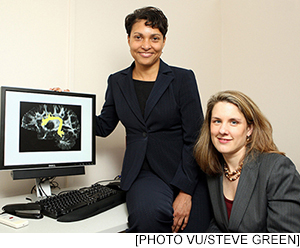 | I became attracted to developmental disabilities research after working in the classroom. I wanted to understand what was happening in the brain when children were experiencing learning difficulties. Reading, especially understanding what one has read, is such an important life skill. In my lab, we’re trying to unravel the mysteries of how people comprehend well and what happens when they don’t. We’re also focused on which elements are the most important, such as vocabulary, understanding grammar, structures of text, type of text, and how all those things relate to different systems in the brain. I wanted to join the Kennedy Center because my overall research program is highly relevant to the Center’s mission of improving the quality of life of children and adolescents with disorders of learning. The opportunities for collaboration with colleagues conducting similar research, as well as having access to the resources at the Kennedy Center, made me seek membership. Laurie Cutting, Ph.D. - Special Education, Psychology, Radiology, and Pediatrics |
|
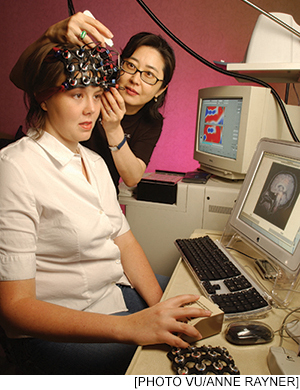 | We study the neural bases of cognitive and social impairments in persons with schizophrenia, but to determine the etiology of these problems, it is abundantly clear that we must look at developmental antecedents. Neurocognitive and social changes during adolescence are crucial because this is the period during which the behavioral signs of psychosis emerge, and this is when we can intervene with a maximal impact. We also are aware that many developmental disabilities lead to psychiatric problems in adulthood, but that these difficulties are not yet adequately addressed. The VKC is a truly unique and rich source of research support and information, and also of ideas and inspiration. The network of research and clinical labs connected with the Center has provided us with opportunities for new innovative collaborations with broader societal impact. For example, we have successfully implemented a computerized brain training program for pediatric cancer survivors with the Compas lab. We are currently implementing a novel virtual reality intervention with the Sarkar Lab, and we are in our third year of examining the cognitive consequences of music training in 'at-risk' children with colleagues at Peabody Research Institute, Chapman and Morrison. Sohee Park, Ph.D. - Psychology and Psychiatry |
|
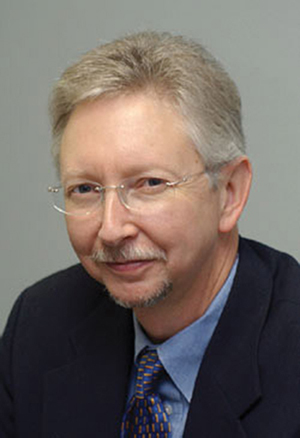 | It was a great opportunity to assist the VKC in enlarging its Statistics and Methodology Core, to add more methodologists to the Core to cover more areas of expertise, and to allow the VKC to make maximal use of the Department of Biostatistics, formed in 2003, which I chair. The primary motivations are to increase the quality, efficiency, and quantity of research done in the Center and to have an opportunity to collaborate with talented Center investigators. Besides the research opportunities and serving the needs of Center investigators, it is heartening to be involved in research in an incredibly important area that affects the lives of individuals with disabilities and their families. Frank Harrell, Ph.D. - Biostatistics |
|
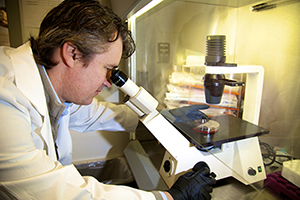 | I am fascinated by the connections between neurodevelopment and neurodegeneration. My research focuses on how functional changes in genes and vulnerabilities to environmental factors beginning very early in development can lead to degradation of normal neurological function later in life. By learning how genes and environmental factors acting throughout life influence the development and maintenance of human health, we may be better able to identify key early steps critical for functional development and long-term health. While access to world-class resources and services is fundamental to my research, it is the people of the VKC who are at the heart of why I became a member. Whether it is its highly collaborative principal investigators, or its dedicated support staff, or the integrated and meaningful connections with families and friends of the VKC–I have experienced and benefited firsthand from the dedication and zeal of those around me. Aaron Bowman, Ph.D. - Neurology |
|
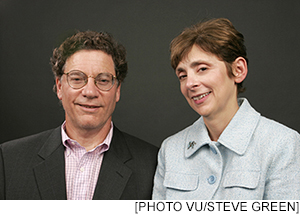 | We began our careers as general education classroom teachers, where we struggled to address the needs of students with learning disabilities. This motivated us to work hard over the years to provide general and special education teachers with methods that can help them address the needs of these students more effectively. We believe in the mission of the VKC, which includes fostering collaborative relationships among investigators from different disciplines. Lynn Fuchs, Ph.D., and Doug Fuchs, Ph.D. - Special Education |
|
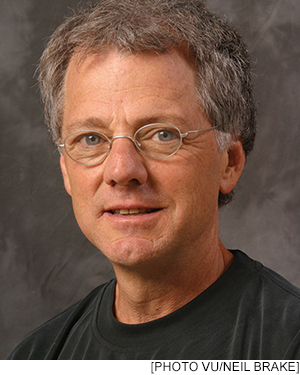 | For decades my work has concentrated on visual function in normal, adult populations. That work has culminated in several theoretical papers in which neural models were developed to account for how the brain registers and interprets visual information. Yet I have always believed that by studying normal function, we also were providing the necessary background work for examining visual disorders and their role in clinical conditions. But it wasn’t until I developed collaborations with VKC investigators that I was able to be involved in realizing the potential of that basic science work. I have been very fortunate to have colleagues who spurred me to study vision in children with autism, and to see connections between my work and possible bases for disorders in people with schizophrenia. It is gratifying to see the fruits of years of my work actually providing some insight into factors contributing to developmental disabilities and, hopefully, to compensation strategies that will allow these people to lead rich, productive lives. Randolph Blake, Ph.D. - Psychology |
|
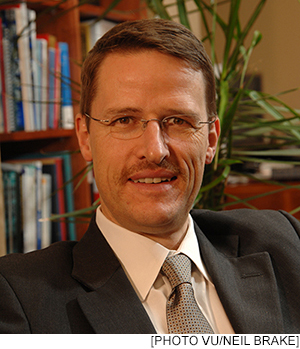 | I am interested in developmental disabilities research for two reasons. First, I am interested in the developmental profile of serious mental illness, especially schizophrenia. There is compelling evidence that schizophrenia is characterized by subtle changes in connectivity and cellular organization that predate the onset of the psychosis by many years. Second, as a psychiatrist and chair of a department, I am aware of the great burden of mental illness in children and adolescents. Early diagnosis of mental illness is essential for proper treatment and, ultimately, prevention and cure. The VKC has brought together a diverse group of researchers and clinicians. Even more importantly, it has connected them with the community--the many patients with developmental disabilities and their families. Stephan Heckers, M.D. - Psychiatry |
|
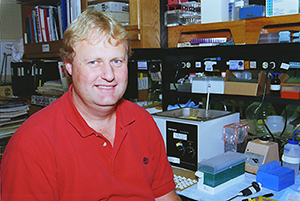 | The precise molecular basis for most developmental disorders of the brain is not well understood, despite robust efforts from many investigators in recent years that have identified key molecular players. We hope that our studies will illuminate the basic mechanisms underlying these processes, suggesting novel therapeutic approaches to prevent, or at least to ameliorate, symptoms of developmental disabilities. The complexity of developmental disorders demands multidisciplinary approaches. The VKC is among the leading examples in the nation of approaches to fostering interactions among the many schools and departments that comprise the Vanderbilt neuroscience community. Roger Colbran, Ph.D. - Molecular Physiology and Biophysics |
|
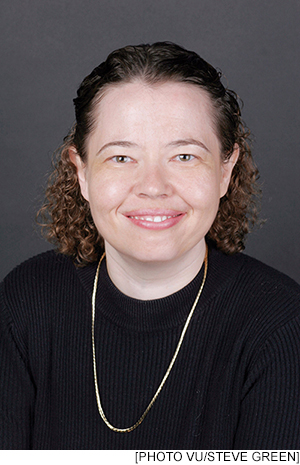 | Developmental disorders touch the lives of almost everyone in some way. Yet developmental brain disorders remain poorly understood. A better understanding of the molecular basis of these disorders could lead to novel strategies for their treatment and prevention. This is a challenging task that will require a concerted effort on the part of researchers and clinicians, who are working together to find a solution. I want to be a part of this effort and I hope that I can contribute in some small way. One of the things that attracted me to the VKC was its integrative approach toward understanding and treating developmental disorders. The Center also recognizes the importance of engaging families and the community as a whole in our effort to prevent, diagnose, and develop effective treatments for developmental disabilities. Working together as a team we can make a difference in the lives of individuals and families with developmental disabilities. Donna Webb, Ph.D. - Biological Sciences |
|
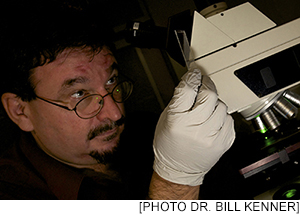 | Developmental disorders are devastating at the levels of individual, family and society. Despite this, developmental brain disorders remain greatly understudied and poorly understood to date. I strongly believe that with joint research and administrative efforts we can make a difference in the lives of individuals with developmental disabilities. I want to be a small piece of the solution. I want to know that I contributed something to a future intervention that will change the lives of individuals with developmental brain disabilities. Integrating research efforts is a first step toward developing effective treatments of developmental disorders. Also needed is integration among families, clinicians, researchers, administrative agencies, and various social groups. Together, and only together, we can achieve amazing things. Through the existence and vision of the Kennedy Center we integrate our efforts, ideas, hopes and dreams. Karoly Mirnics, M.D., Ph.D. - Psychiatry |
|
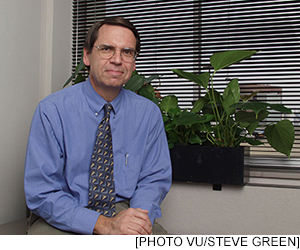 | Stress and adversity place burdens on individuals and families throughout the life span. The study of coping with stress and adversity and the implications of stress for physical and mental health are best approached from a developmental perspective. Our lab is interested in identifying developmental differences in coping, and creating and testing interventions to help children, adolescents and families learn to cope more effectively with stress. The VKC offers extraordinary resources for developing and conducting psychological research. These range from outstanding resources for seeking and securing external funding for research, to resources to facilitate interdisciplinary research. The important questions we are faced with in mental health cannot be addressed by a single discipline. The important ideas and discoveries are going to come from the collective efforts of researchers from multiple perspectives and disciplines. The VKC provides a context to develop and foster these relationships. Bruce Compas, Ph.D. - Psychology and Pediatrics |
|
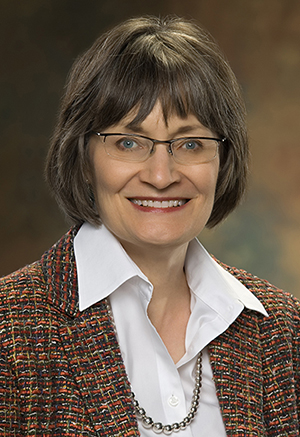 | When I began my career, my clinical practice included many pediatric patients with chronic or recurrent pain who were referred to me for psychotherapy because their medical evaluations yielded no evidence of organic disease or injury. At that time, most health care providers believed that these patients’ pain was “not real” or was “just in their head.” I was intrigued by this problem and developed a program of research aimed at identifying processes that could create disabling chronic pain in children who, according to their medical evaluation, were perfectly healthy. My interest in this area has been sustained over the years by advances in our understanding of how the mind and the body interact to influence our experience of pain. Because a biopsychosocial perspective guides my research, I find the multidisciplinary nature of the VKC particularly attractive. The disciplines represented by the Kennedy Center offer unique and valuable insights into the nature of pain. The VKC is a major reason that I have spent my entire academic career at Vanderbilt. Lynn Walker, Ph.D. - Pediatrics and Psychology |
|
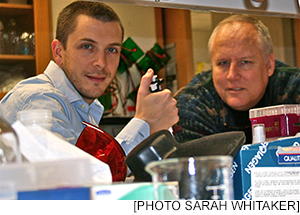 | Early in my career my lab focused on fundamental neurobiology and identifying genes and proteins that impact chemical signaling. When I came to Vanderbilt and joined the VKC, I was encouraged to consider how my work on serotonin and dopamine transporters might link to neurodevelopmental disorders. I was impressed early on with the breadth of talent assembled by the VKC and the connections I made in this community started me down that path. My lab’s work is very focused, just one step, and our efforts might be wasted if not embraced in a larger context. I started my translational efforts with a VKC Hobbs Discovery Grant, and have been excited to see these efforts blossom. This grant allowed me to develop approaches to scan human transporter genes for mutations, efforts that led to the discovery or alterations in the dopamine transporter in subjects with ADHD, as well as changes in the serotonin transporter gene in subjects with autism. These mutations, which remain under active study in our lab as well as with collaborators, have led to significant funding from the NIH, and have been transferred into animal models so that we may gain insights into brain changes and possibly develop new treatments. Randy Blakely, Ph.D. - Pharmacology and Psychiatry |
|
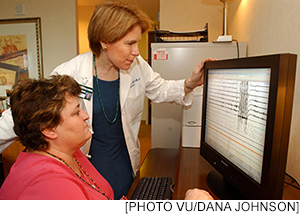 | Sleep is an integral part of health and influences daytime behavior in a variety of neurological disorders. After 10 years of studying the effects of sleep disorders on epilepsy, I decided to apply this model to autism spectrum disorder (ASD). A major influence on me was my 6-year-old son, who is on the spectrum and, thankfully, is an excellent sleeper. I became immersed in understanding ASD. I realized that identifying and treating disordered sleep in autism could make a huge difference in the lives of affected children and their families. The VKC has provided me with many resources to carry out my work. The most important resource is the network of collaborators within the Center who have assisted in developing ideas for sleep research projects and allowed me to integrate behavioral, genetic, and circadian measures into my research. Beth Malow, M.D., M.S. - Neurology and Pediatrics |
|
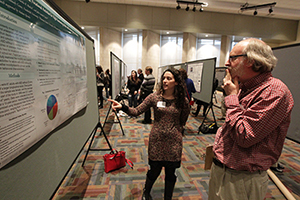 | My interest in studying developmental disabilities arose from both my work and my educational experiences. Throughout college and graduate school, I worked as a teacher of children with severe to profound disabilities. Simultaneously in my Ph.D. program, I was learning about children’s development, mother-child interactions, and families of typically developing children. As a postdoctoral fellow, I began to join these two worlds. I began exploring how theories, approaches, and findings derived from work on typically developing children might apply to children with developmental disabilities. I also began examining with Elisabeth Dykens how children with particular genetic disorders differed in their behavioral development, and how behaviors of children with particular syndromes might affect their family members. The VKC combines a strongly held, multidisciplinary focus with a rock-solid commitment to children with disabilities and their families. In addition to the researchers themselves, a skilled, dedicated group of VKC staff help everyone to get things done. With support from several private foundations and federal agencies, the VKC has expanded services to persons with disabilities and their families. Where else can one work every day with such a talented, committed group of scientists, staff, and service providers, all of whom share a mission to learn about and to serve individuals with disabilities and their families? Robert Hodapp, Ph.D. - Special Education |
|
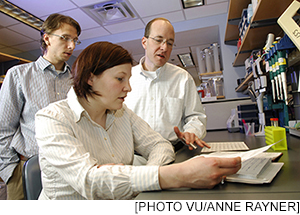 | I have been attracted to developmental disabilities research since graduate school, when I was involved in cloning the fragile X syndrome locus. I continued work to solve genetic puzzles related to developmental disabilities as a postdoctoral fellow studying Prader-Willi and Angelman syndrome. I have extended these efforts across the genome in collaborative efforts to discover the nature of genetic variation underlying autism. Studying how systems are affected by risk factors may ultimately lead to improved therapeutic options for vulnerable populations. The VKC is unique as a trans-institutional Center with activities spanning an extraordinary spectrum from community outreach and family support to basic research. It is this reach across so many disciplines, providing opportunities to bring different kinds of expertise and investigators together to attack the problem of diagnosing, treating, and deciphering the underlying biological basis of a developmental disorder that I find so compelling. James Sutcliffe, Ph.D. - Molecular Physiology & Biophysics |
|
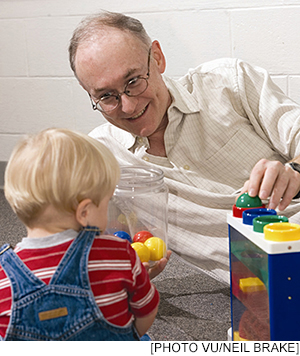 | As a sophomore volunteer in a preschool for children with language impairments. I was fascinated and touched by these bright children who had such difficulty communicating. One of the children had autism. Another had intellectual disability. Another seemed fine in every way but could not speak clearly. It seemed obvious that we could not use the same teaching methods with all of these children. Doing developmental disability research combines my love of the scientific method, my desire to be a positive force in the lives of children with communication disabilities, and my love of learning. The VKC Psychophysiology Lab is an example of the VKC’s commitment to supporting multidisciplinary research. Without it, this behavioral scientist could never move into using ERPs to measure speech processing. Without VKC Information Technology production and support of custom-made or adapted data collection and analysis programs, I simply would not be able to accomplish what I do. Paul Yoder, Ph.D. - Special Education |
|
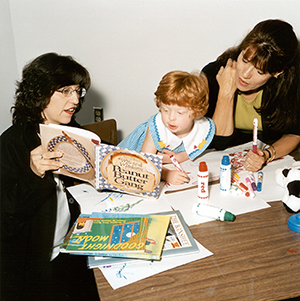 | My interests in language and communication by young children with intellectual and developmental disabilities (IDD) began when I was a postdoctoral fellow at University of Kansas conducting a study of children with IDD who lived in a residential treatment center. At the same time, I was taking advanced courses in linguistics and child language. The combination of observing how these children and youth communicated (or did not communicate) and learning about theories of language acquisition prompted me to start a series of studies on early language intervention in natural environments. I am still interested in effective early interventions that can be delivered in natural environments to promote the best possible outcomes for children with disabilities and their families. I came to Vanderbilt in large part because of the research support and opportunities that the VKC offered. I saw membership in a center as a wonderful way to be involved in IDD research nationally, to have access to colleagues with similar interests, and to conduct my research in a context where it would be valued and supported. Over the years, the VKC has provided many practical supports for my projects. The VKC offers opportunities to collaborate with researchers on campus who have similar interests and to meet with outstanding researchers from all over the country who visit the VKC. The VKC core services assist me in recruiting children and families and staying in communication with the community. Ann Kaiser, Ph.D. - Special Education and Psychology |
|
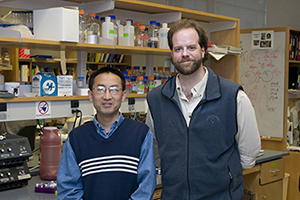 | I am a developmental neurobiologist using a genetic approach to study the molecular mechanisms of neuronal function. My primary interest is in understanding the formation of neural circuits and the adaptive plasticity of these circuits that drive behavioral change. One motivation behind my interest is to help people who have neurological disorders. The VKC brings together people at all levels (clinicians, intervention therapists, neuroscientists) to work together on discovering the causes of neurological disorders and devising treatments and cures. It is a particularly valuable resource to me, as a fundamental neuroscience researcher, in providing contacts with other groups of researchers who provide unique insights and perspectives that would otherwise not be available. The VKC brings to campus the world’s leading experts in neurogenetics and neurobiology to provide seminars and highly valued interactions. Last but not least, the VKC provides an avenue of interaction with children and families experiencing developmental disorders. Kendal Broadie, Ph.D. - Biological Sciences |
|
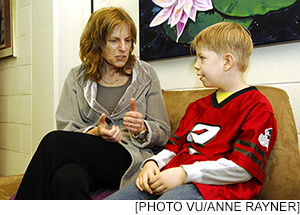 | My father was a psychiatrist, and as a young child, I spent Saturdays at his clinic and so was accustomed to being with people with disabilities. Later, we lived on the grounds of a state mental health hospital, where I had many friends with different types of developmental and psychiatric difficulties. I wanted to better understand their lives and stories. At the Yale Child Study Center, my experiences with children with fragile X syndrome started me on the path of looking at other genetic syndromes, since they offer unique windows for understanding the connections among genes, brain, and behavior, as well as specific ways to optimize interventions with individuals and families. My husband and I moved to Vanderbilt because we wanted to be part of a community of researchers and others dedicated to understanding people with developmental disabilities on a number of different levels—genetics, brain science, treatments, supporting families, public policy, and advocacy. The VKC embodied all of that in one place. Elisabeth Dykens, Ph.D. - Psychology, Psychiatry, and Pediatrics |
|
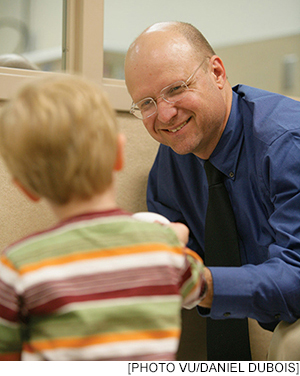 | When I was growing up, a fellow named Herbie played with us. I didn’t realize how unusual this was for the time, since most people with Down syndrome were institutionalized then. As I got older, I realized that many people didn’t see Herbie as a valued member of the community in the way that we felt growing up. When I began training as a clinician, it became clear that many aspects of intervention, although rooted in clinical knowledge, had not been examined through research. It was only natural that this interest in clinical practice and improving services to people with disabilities would be a primary research interest. The VKC is a tremendous place to interact with other researchers interested in developmental disabilities. Stephen Camarata, Ph.D. - Hearing & Speech Sciences and Psychiatry |
|
Submit your reflection here